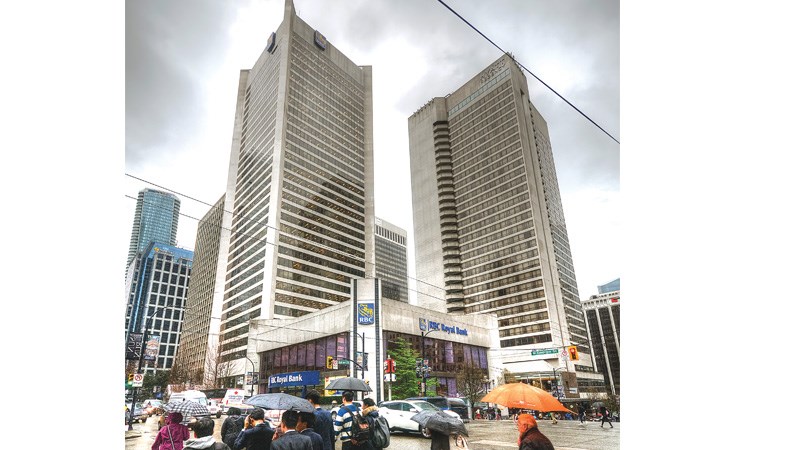Stiffer currency regulations in China are dampening Vancouver real estate sales, but analysts note that wealthy – and nervous – Europeans could represent the next wave of foreign buyers seeking Canadian commercial property.
According to global property service firm Jones Lang LaSalle (JLL), China’s outbound commercial real estate investment increased 53 per cent to US$33 billion in 2016 from a year earlier.
In Vancouver, the largest acquisition was the purchase of a downtown office portfolio last year by Beijing-based Anbang Insurance Group for close to $1 billion. China-based investors have also purchased land for joint-venture real estate development. A recent deal includes TransLink’s 13.8-acre former bus depot in Vancouver, where Modern Green Development Co. of China became the majority owner with a $440 million bid.
But the People’s Bank of China and the State Administration of Foreign Exchange (SAFE) recently launched an aggressive intervention in the market to curb capital outflows. In January it was ruled that all buyers of foreign exchange must sign a pledge that they won’t use their $50,000 quotas for offshore property investment.
The annual quotas have been in effect for years, but enforcement had been sporadic. Now, violators will be added to a government watch list, denied access to foreign currency for three years and subjected to money-laundering investigations, SAFE said in a statement.
Residents of China had been quite active in Metro Vancouver until the B.C. government imposed a 15 per cent tax on foreign buyers last August.
Since then, overall housing sales have plunged 47 per cent and price increases have flat lined, according to the Real Estate Board of Greater Vancouver.
Joe Zhou, JLL’s head of research in China, has predicted a “big drop” in Chinese overseas purchases this year.
“We do expect a slowdown in outbound investment made by Chinese investors because of strict capital controls, which is not likely to be loosened any time soon. The impact will be felt across all the major global cities where Chinese investors have been active over the past few years,” Zhou said in email to Western Investor.
Vancouver may already be sharing the pain.
“I have been hearing rumours of some key China-based players in Metro Vancouver not waiving their conditions on transactions due to lack of investor funding,” said Stanley Chui, vice-president of Gammon International Real Estate Corp., which is active with foreign investors. Chui said he has personally seen no issues on foreign-buyer real estate deals worth less than $5 million, “because at this level the deals can be all cash.”
Tina Mak, a Vancouver real estate agent and founding president of the Vancouver chapter of the Asian Real Estate Association of America, confirmed sales to China-based buyers are down in Vancouver, and she expects even tougher currency controls are coming. “There will be more rules to get [China-based offshore buyer] funds approved by the [Chinese] government.”
If China buyers waver, Europeans may be the next foreign investors to step up, according to Peter Senst, president of CBRE Canada Capital Markets.
Last year, German billionaire Klaus-Michael Kuehne bought the Royal Centre office and retail tower in Vancouver for $425 million, which may be a harbinger.
In a recent study, CBRE found that foreign buyers accounted for 41 per cent of the total investment volume in Canada’s commercial real estate sector in the third quarter of 2016, double the pace in the first half of the year.
“When you break down the sources of foreign capital in 2016, buyers from China and Hong Kong make up 65 per cent of foreign capital transactions by volume. However, nearly a third of the total foreign investment volume came from European buyers. This is more than double the historic five-year average and appears to reflect the growing geopolitical uncertainty in the EU [European Union],” Senst said.
Increased economic uncertainty in Europe in the wake of Brexit may encourage more wealthy Europeans to seek shelter in a yield-starved world, he suggested.
“Canada, with its stable real estate market in a country that protects property rights, is about as a safe a bet as there is,” Senst said.



